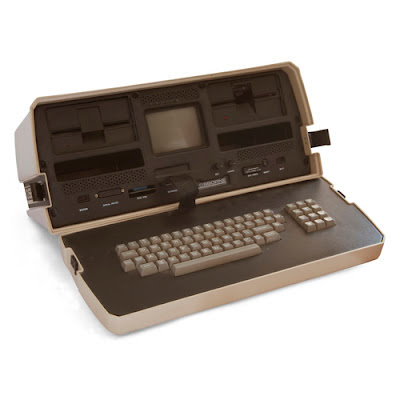A few days ago I wrote about GM’s CEO Dan Akerson talking about 200 mile driving range electric cars![]() . This piece triggered an idea in the back of my mind, recalling the Osborne Effect, or the result which happens when a company announces the next generation product and customers stop buying the current generation problem. That’s what Akerson did, was to talk about the next generation electric vehicle and make it appear to be so compelling that intelligent people could say “oh.. I think I’ll wait a couple years”. This runs a risk that the electric vehicle market will simply die because sales dry up because everyone is waiting for the next generation
. This piece triggered an idea in the back of my mind, recalling the Osborne Effect, or the result which happens when a company announces the next generation product and customers stop buying the current generation problem. That’s what Akerson did, was to talk about the next generation electric vehicle and make it appear to be so compelling that intelligent people could say “oh.. I think I’ll wait a couple years”. This runs a risk that the electric vehicle market will simply die because sales dry up because everyone is waiting for the next generation![]() .
.
It was a theory in my mind – maybe people would jump to this conclusion, and then wait to buy an electric car because next years is going to be so much better.
But then I just read this piece on Forbes, by Todd Woody, about why the author did not buy a Ford Focus Electric![]() . He had borrowed one from Ford for two weeks, loved the car, wrote up a fantastic review, but decided to not buy the car anyway. It’s not that he’s an EV hater, he owns a first generation Toyota RAV4 EV. It’s that .. well .. he said it oh so well
. He had borrowed one from Ford for two weeks, loved the car, wrote up a fantastic review, but decided to not buy the car anyway. It’s not that he’s an EV hater, he owns a first generation Toyota RAV4 EV. It’s that .. well .. he said it oh so well
But I wasn’t prepared to take the technology risk of buying an electric car that could turn into the automotive version of an iPhone 3gs in five years if, say, Tesla comes out with a $30,000 car or startups like Envia make good on efforts to create a 200-mile range battery.
That’s the Osborne Effect right there in real life.
Then he thought, a lease would be great because it would push the risk onto the car maker. But
Leasing seemed the way to go and Ford’s site quoted a $439 a month rate for a three-year lease. Kinda high but not outrageous. Until I started contacting dealers and got quotes ranging from $550 with a $2,500 down payment to around $600 a month with no down payment to lower the capitalized cost of the car. (You have to read the small print on the Ford site to learn that $439 doesn’t include, tax, title and other charges.)
Sigh.
BTW – I’ve driven the Ford Focus Electric as well, and think it’s an excellent car. In my case I already own an electric car and do not need to buy a new car.
- Highway design could decrease death and injury risk, if “we” chose smarter designs - March 28, 2015
- GM really did trademark “range anxiety”, only later to abandon that mark - March 25, 2015
- US Government releases new regulations on hydraulic fracturing, that some call “toothless” - March 20, 2015
- Tesla Motors magic pill to solve range anxiety doesn’t quite instill range confidence - March 19, 2015
- Update on Galena IL oil train – 21 cars involved, which were the supposedly safer CP1232 design - March 7, 2015
- Another oil bomb train – why are they shipping crude oil by train? – Symptoms of fossil fuel addiction - March 6, 2015
- Chevron relinquishes fracking in Romania, as part of broader pull-out from Eastern European fracking operations - February 22, 2015
- Answer anti- electric car articles with truth and pride – truth outshines all distortions - February 19, 2015
- Apple taking big risk on developing a car? Please, Apple, don’t go there! - February 16, 2015
- Toyota, Nissan, Honda working on Japanese fuel cell infrastructure for Japanese government - February 12, 2015



















In the mean time, I'm driving electric NOW, not paying for gas NOW, not generating emissions NOW. Electric cars are in their infancy, there will be a better car around the corner for years to come. I've got an EV that suits my driving needs relatively well and I'll drive it for years while the cars get better and better and pick up a new one eventually that's much more evolved, but I'll be in no hurry. Would you really rather have had no iPhone at all than have an iPhone 3? You'd still be waiting for the iPhone 5, stuck using your old blackberry because no one would have invented all the iPhone copycats if the iPhone 3 hadn't taken off.
There are always going to be people who 'wait'. The computer industry has many examples of this. When asked if someone should wait for xyz to come out before buying, I often say no, because when that comes out there will be something else 'worth waiting for' on the horizon. In the meantime you are getting the benefit of neither of the technologies, the one you can get today nor the one you may get tomorrow.
As a consumer you have to choose when buying makes sense and do it regardless of promised innovations.